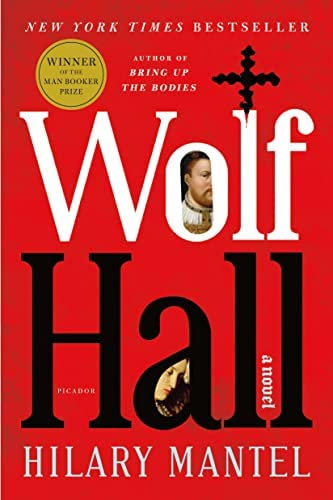Wolf Hall
By Hilary Mantel
I picked this up after hearing of Mantel's death. I'd picked it up before at my parents' house, and wassurprised to find its beginning pages far more interesting than I'd imagined. It follows the rise of Thomas Cromwell -- not the other famous Cromwell, Oliver -- during the reign of Henry VIII. It was a time of great societal change in England as Henry's failure to produce an heir with his wife, Catherine of Aragon, and his wandering heart led him to an impasse with Pope Clement that ultimately produced the English Reformation.
Cromwell's position of power in guiding these affairs was surprising given his "low" birth. He was the son of a blacksmith whose violent beatings sent the younger Cromwell fleeing to Europe, where he served in various armies. When he became Henry's master secretary, he became the first person without a "noble" birth to hold such a position, and it seems as though Cromwell's suspicion of a system that ranks people based on their ancestors parallels his thoughts about papal power. Mantel, I've read, has also reimagined Cromwell, who, though I'd never heard of him, was traditionally depicted as conniving and power-hungry. Mantel's Cromwell, meanwhile, is generous and tolerant and wise.
What struck me in reading the book was just how much a hold Christianity had on people back in the 1500s. Henry's excommunication and subsequent break with Rome seemed to cause an international crisis. Meanwhile, people are being burned at the stake for translating the Bible into English. Everyone is so darn certain of their afterlife in heaven that they are willing to die for their support of this or that interpretation of religion. Then again, one wonders if we have now replaced religion with something else. Republicans across the nation, after all, have plotted violence against Democrats. Or maybe it is that people susceptible to religion are predisposed to follow blindly, though I know that is an ungenerous characterization.
Whatever the case, I will say that by the end of this book's 600 pages, reading about the political machinations of 16th-century England became a bit...tedious. The problem with historical fiction is that the outcome is usually known. It seems like getting there could take fewer pages.

No comments:
Post a Comment